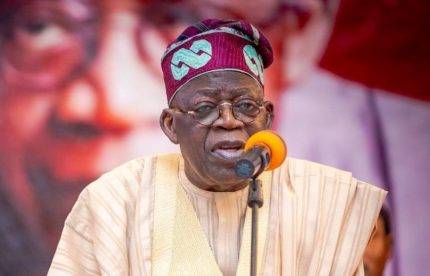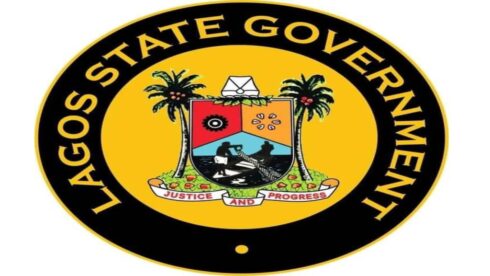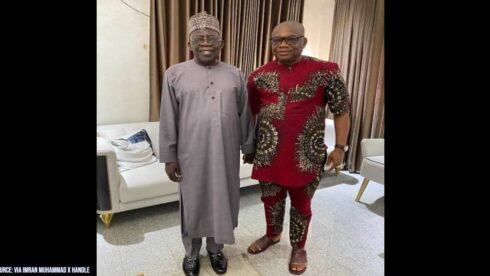President Tinubu’s proactive stance against cabalistic influences underscores his strategic commitment to transparent governance mechanisms. With Ajuri Ngelale’s affirmation, Tinubu’s dedication to upholding democratic principles and fostering inclusive decision-making processes becomes evident, reassuring stakeholders of astute leadership. The presidency’s resolute stance against the formation of any cabal around Tinubu’s administration reflects a proactive approach to safeguarding governmental integrity. This proactive stance serves as a shield against concerns of backdoor influence or undue control by vested interests, thereby reinforcing transparency and accessibility within the administration.
Tinubu’s comprehensive understanding of governance mechanisms at both federal and sub-national levels further solidifies his leadership credibility. By addressing concerns head-on and emphasizing transparency, the presidency aims to reassure the public and stakeholders of Tinubu’s steadfast commitment to astute governance. Through proactive measures and decisive actions, Tinubu’s administration sets a precedent for effective leadership, prioritizing the interests of the populace above all else.
The Presidency: Accessible Leadership, President Tinubu’s Proactive Approach to Governance
Ngelale’s depiction of President Tinubu as a leader accessible to diverse stakeholders, including intelligence and anti-graft agencies, illuminates his proactive stance in pivotal decision-making processes. By establishing direct communication channels with key institutions, Tinubu showcases his resolute commitment to tackling corruption head-on and upholding accountability standards. This deliberate approach signifies a departure from past administrations’ covert power dynamics, emphasizing Tinubu’s dedication to fostering a transparent governance framework.
Moreover, Tinubu’s steadfast determination to prevent the resurgence of clandestine influences highlights his unwavering resolve to cultivate a governance environment grounded in transparency and accountability. His proactive engagement with intelligence and anti-graft agencies underscores a strategic shift towards inclusive decision-making, aimed at thwarting the emergence of any opaque power structures within the presidency. By prioritizing accessibility and accountability, Tinubu sets a precedent for effective leadership focused on fostering trust and integrity in governance processes.
The Presidency: Promoting Transparent Governance under President Tinubu
In an era marked by skepticism towards governmental transparency, President Tinubu’s administration stands out for its unwavering commitment to openness and inclusivity. By emphasizing that no single individual holds exclusive access to information or sway over decision-making processes, the presidency sets a precedent for transparent governance mechanisms. This approach not only fosters an environment of accountability but also safeguards against the emergence of clandestine power dynamics within the administration. President Tinubu’s deliberate efforts to maintain direct communication channels with various stakeholders reinforce the administration’s dedication to equitable access, thereby bolstering democratic principles and ensuring that all voices are heard in the corridors of power.
President Tinubu’s administration prioritizes inclusivity as a cornerstone of its governance strategy, aiming to prevent the formation of exclusive cliques that could potentially undermine democratic values. By fostering an environment where access to the president is equitable and open to all, the administration effectively neutralizes the risk of any cabalistic tendencies taking root. This proactive approach not only promotes transparency but also serves as a deterrent against covert power struggles, ensuring that decision-making processes remain guided by democratic principles rather than opaque interests. Through sustained efforts to maintain direct communication channels with key stakeholders, President Tinubu reinforces the administration’s commitment to inclusive leadership, ultimately strengthening the foundation of democratic governance in the nation.
The Presidency: President Tinubu’s Strategic Governance Approach, A Nuanced Perspective
In unveiling President Tinubu’s strategic governance approach, Ngelale offers a compelling analysis that underscores a profound comprehension of historical antecedents and prospective challenges. Tinubu’s methodology involves a meticulous examination of past administrative paradigms, allowing him to anticipate and mitigate potential susceptibilities susceptible to manipulation by vested entities intent on swaying policy trajectories. By proactively collaborating with intelligence and anti-corruption entities, Tinubu demonstrates an unwavering resolve to combat malfeasance and champion the sanctity of legal frameworks, thereby fortifying the administration’s dedication to transparent and accountable governance. This proactive stance not only fosters a culture of integrity but also bolsters public trust in the administration’s ability to navigate complex socio-political terrain with ethical fortitude.
In elucidating Tinubu’s governance ethos, Ngelale delves into a multifaceted strategy rooted in a keen awareness of historical context and contemporary exigencies. Tinubu’s astute utilization of accumulated wisdom and experiential insights positions his administration to preemptively address systemic vulnerabilities, fostering an environment conducive to equitable decision-making processes. By prioritizing collaboration with intelligence and anti-graft agencies, Tinubu underscores his administration’s commitment to eradicating corruption and reinforcing the primacy of legal frameworks. This approach not only engenders confidence among stakeholders but also sets a precedent for principled governance anchored in foresight and ethical rectitude, affirming Tinubu’s status as a trailblazer in Nigeria’s political landscape.
The Presidency: Preventing Cabals: The Presidency’s Proactive Approach
President Tinubu’s administration prioritizes vigilance to thwart any attempts at the formation of clandestine cabals. This preemptive measure underscores the administration’s commitment to upholding institutional integrity and averting undue influences. By remaining steadfast in guarding against such formations, the presidency ensures that decision-making processes retain transparency and accountability, thereby reinforcing public trust in governance.
President Tinubu’s accessibility to a diverse array of stakeholders and direct communication channels with key institutions serve as pillars in fortifying against covert power dynamics. This accessibility not only fosters open dialogue but also cultivates an environment of inclusivity within the administration. By engaging with various stakeholders and promoting transparency, the administration lays the groundwork for a governance framework anchored in integrity and ethical conduct, thus enhancing its credibility and effectiveness in serving the public interest.
The Presidency: President Tinubu’s Commitment to Democratic Principles
President Tinubu’s steadfast commitment to upholding democratic principles and preventing the resurgence of any cabalistic influence is evident in his pledge to foster a transparent and accountable administration. By actively engaging with intelligence and anti-graft agencies, Tinubu demonstrates a proactive stance against corruption, signaling his dedication to ensuring that governmental decisions prioritize the public interest. His emphasis on learning from past mistakes and steering towards inclusive governance underscores his unwavering determination to advance the democratic ideals upon which his administration is built. Through these measures, Tinubu seeks to instill confidence in the populace and strengthen democratic institutions, laying the groundwork for a more equitable and just society.
President Tinubu’s proactive engagement with intelligence and anti-graft agencies reflects his commitment to combating corruption and fostering a governance framework grounded in transparency and accountability. By addressing systemic challenges and promoting open dialogue, the Presidency aims to establish a government that is responsive to the needs and aspirations of the people. His pledge to learn from past errors and embrace inclusive governance further underscores his dedication to strengthening democratic values and ensuring that all voices are heard in the decision-making process. Through these efforts, Tinubu not only seeks to uphold the integrity of democratic institutions but also to create a conducive environment for sustainable development and progress for all citizens.
Table of Contents
Discover more from OGM News NG
Subscribe to get the latest posts sent to your email.













